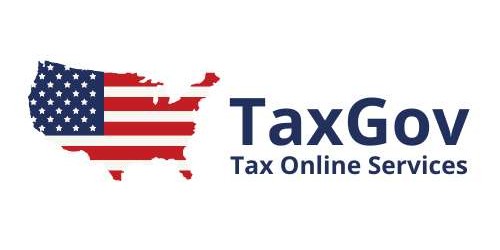Understanding What an ITIN Is
Understanding what an ITIN is, or Individual Taxpayer Identification Number, is crucial for anyone navigating employment opportunities in the United States without a Social Security Number. An ITIN is a tax processing number only available for certain nonresident and resident aliens, their spouses, and dependents who cannot get a Social Security Number. It enables them to comply with U.S. tax laws and provide a means to file a federal tax return. ITINs do not authorize individuals to work in the U.S. or provide eligibility for Social Security benefits or the Earned Income Tax Credit. However, having an ITIN will allow a person to meet their tax responsibilities, emphasizing the distinction between taxation and employment eligibility.
Can You Legally Work with an ITIN?
Can you legally work with an ITIN? The ITIN itself does not grant authorization to work legally in the United States. When considering employment, it is essential to understand the legal restrictions in place regarding ITINs. They are fundamentally designed for tax reporting and are not intended to facilitate employment authorization or immigration status adjustment. Only individuals with employment authorization from the Department of Homeland Security are legally permitted to work. Thus, while an ITIN can be used for tax purposes if you have earnings due to unauthorized work, it does not legalize the act itself or provide the right to obtain work legally within the U.S.
Need help getting your ITIN?
We can help you apply for your ITIN quickly and easily. Let our team handle the process for you.
The Role of ITIN in Employment
The role of ITIN in employment comes into play primarily for tax-compliance purposes. Many who work without legal authorization in the U.S. rely on ITINs to file tax returns because they cannot obtain a Social Security Number. This separation means that taxes can be paid even if the work conducted was not authorized. Although the IRS explicitly states that taxes and immigration law pertain differently to foreign individuals, keeping tax matters in order with an ITIN may sometimes positively influence future immigration statuses. Nevertheless, it is crucial to understand that using an ITIN does not substitute for the valid work authorization that certain visas or employment permits provide.
Strategies for Working with an ITIN
Strategies for working with an ITIN are often approached cautiously due to the potential legal and immigration implications. Those with ITINs looking for legitimate employment should aim to adjust their status through the appropriate channels, such as employer sponsorship or family-based immigration petitions that provide work authorization. Staying informed about policy changes and consulting with immigration lawyers or specialized consultants can offer guidance on such pathways. As alternative measures, exploring self-employment or small entrepreneurship, within legal confines, using an ITIN, can also be avenues worth considering.
How to Obtain an ITIN
How to obtain an ITIN involves navigating the U.S. tax system, particularly for those who require it for tax return filing. To apply for an ITIN, one needs to file Form W-7, Application for IRS Individual Taxpayer Identification Number. Supporting documentation to prove the identity and foreign status of the applicant is also mandatory, which typically includes original documents or certified copies from the issuing agency such as a passport. The form and documents need submission to the IRS. Additionally, ensure the tax return is attached unless qualified for an exception. The entire process can be complex, and it’s advisable to seek assistance from a professional familiar with U.S. tax laws to avoid common pitfalls.
Benefits of Having an ITIN Despite Work Restrictions
Benefits of having an ITIN despite work restrictions can be significant for individuals living and potentially planning an extended stay in the United States. Filing taxes with an ITIN demonstrates compliance with federal tax law, which can be advantageous if seeking to adjust one’s immigration status in the future. It also provides the benefits of financial accounts and can help establish a presence in the financial system, such as obtaining credit cards or loans from institutions that accept ITINs as valid identification. These financial tools can be critical for building credit history and becoming financially integrated until more permanent legal statuses are secured.
ITIN Impacts: Taxes and Employment
ITIN impacts: taxes and employment reflect the unique duality within the U.S. system that separates tax obligations from immigration enforcement. While ITINs do allow individuals to file taxes, they do not cover any issues related to lawful employment in the country. This can create a complex scenario where individuals are tax compliant without necessarily having the legal means to earn those taxes. It’s important for ITIN holders to recognize the limitations as well as the obligations they are meeting with these tax IDs. Proper tax filing with an ITIN often maintains a clean financial footprint, underscoring honesty and transparency that could be beneficial under certain immigration assessments, though it guarantees nothing.
Need help getting your ITIN?
We can help you apply for your ITIN quickly and easily. Let our team handle the process for you.
Common Misconceptions About ITINs and Work
Common misconceptions about ITINs and work often lead to confusion, particularly among those attempting to navigate the complex interplay between tax reporting and employment legality. One frequent misunderstanding is that possessing an ITIN equates to having work authorization, which is untrue as ITINs do not come with any such privileges. Another is the belief that filing taxes with an ITIN could lead to penalties for unauthorized work; however, while the IRS does not enforce immigration or employment laws, being forthright with taxes could play a role in future legal standing. Educating oneself on these distinctions can prevent legal pitfalls and align expectations appropriately.


